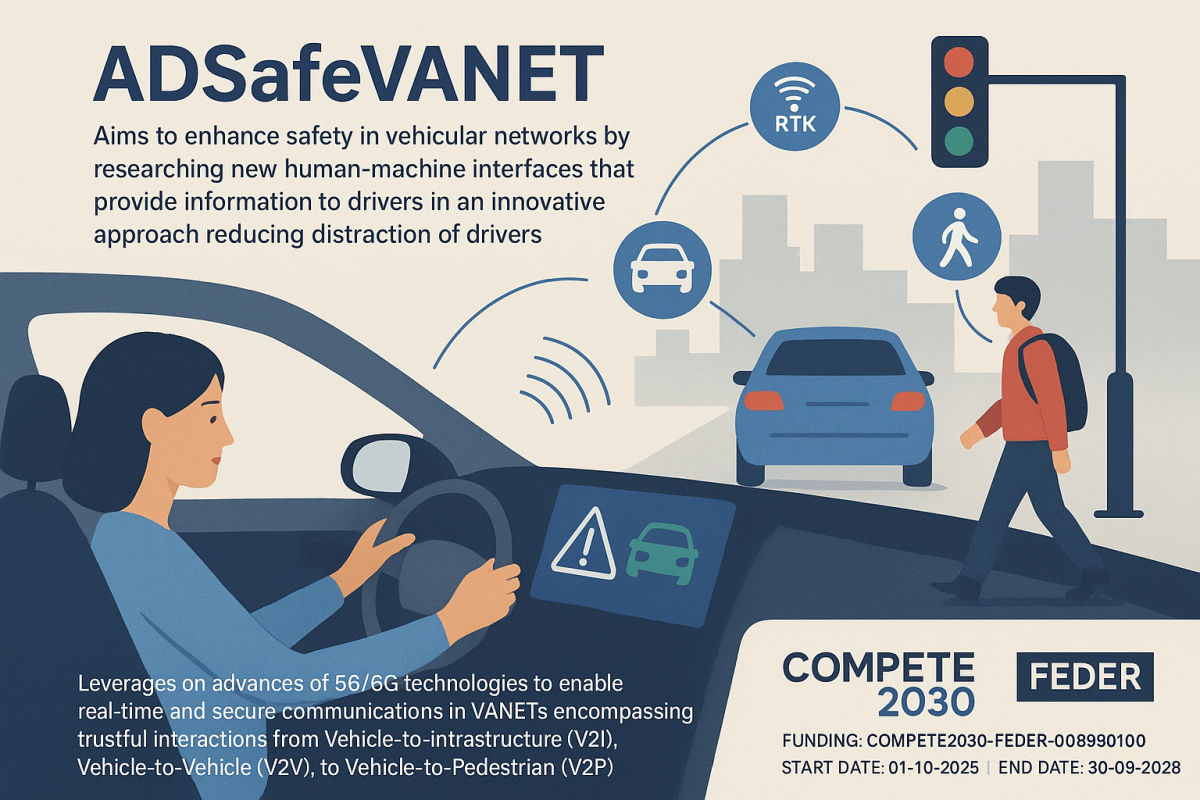Augmented Driving for Safer Vehicular Networks
ADSafeVANET aims to enhance the safety in vehicular networks by researching new human machine interfaces that provide information to drivers in an innovative approach reducing the distraction of drivers. ADSafeVANET leverages on the advances of 5G/6G technologies to enable real-time and secure communications in VANETs encompassing trustful interactions from Vehicle-to-Infrastructure (V2I), Vehicle-to-Vehicle (V2V), to Vehicle-to-Pedestrian (V2P).
The VRLab is responsible for investigating in-car human-machine interfaces (HMIs) aimed at improving driver situational awareness during overtaking and pedestrian interactions without causing distraction, using virtual reality as the main testing environment. Following a user-centred design approach, candidate HMIs will be developed through iterative prototyping and feedback, and then integrated into an adapted VR driving simulator equipped with simulated sensors and VANET communications. The resulting interfaces will be evaluated through VR-based driving exercises using established usability and automotive HMI standards to assess effectiveness, safety, user experience, and suitability during realistic driving conditions.
Project details
Participating Institutions in the Project:
- University of Coimbra (DEI/CISUC)
- University of Aveiro
Reference: COMPETE2030-FEDER-00888100
Funding Program: COMPETE2030-FEDER
Execution period: 01/10/2025 to 30/09/2028


